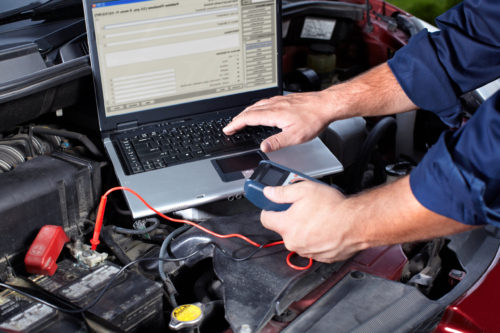
Have you thought about how hard your car’s battery works? It powers many of the car’s most essential operational components and a fully charged battery starts and keeps the engine running. In optimal conditions, car batteries last four to six years. Outside factors, including weather and your driving habits, may reduce the amount of power it provides, which affects how well your vehicle operates.
What a Car Battery Does
A car’s battery is a key component of its starting and charging systems, which work together to convert chemical energy into mechanical energy. Once you turn the key, the starter uses mechanical energy to get the engine going. The engine’s rotation powers the alternator, which transfers energy to the battery, which will store it as chemical energy to later power the starter and other operational components. Meanwhile, the engine’s mechanical energy keeps the alternator going and helps your battery hold a charge.
Car Battery Issues
Particularly where the alternator and battery are concerned, if one component gives out, the battery won’t hold a charge or be able to power other components. If the battery is not routinely checked, you could one day find yourself stranded on the side of the road.
In response, be on the lookout for:
- Engine cranks or a series of rapid clicks when you put the key in the ignition, but the car won’t start.
- Trouble getting the car started, particularly in colder weather.
- Exterior and dashboard lights that appear dimmer than usual, even when the vehicle starts.
- A series of dead batteries, which could be related to the alternator, charging system or storing the car in extreme temperatures.
Battery Maintenance Services
As a rule of thumb, have your battery checked out every time you have an oil change. Especially during the winter months, your car’s battery has a greater chance of dying. During these appointments, a service technician may:
- Inspect all connections for corrosion, debris and any loose fittings
- Clean the cable ends and battery terminals, replacing any worn or damaged cable ends
- Tighten the battery cables
- Protect it from moisture and potential corrosion
- Test its performance to ensure it can last through more extreme conditions
- Assess the electrical draw of the starter and alternator output
- Replace a battery that’s beyond repair
If your car has issues starting, take it into DaSilva’s for a diagnostic assessment and possible repairs. To make an appointment, contact our Naugatuck shop today.

